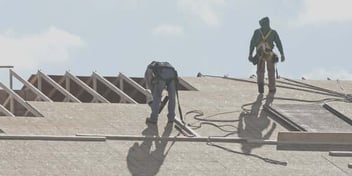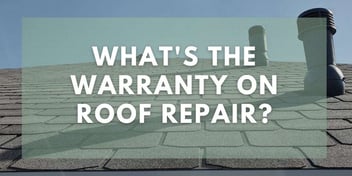- Home »
- Learningcenter »
- Roof warranty guide types
Roof Warranty Guide: Types, Length, Coverage, and Limitations
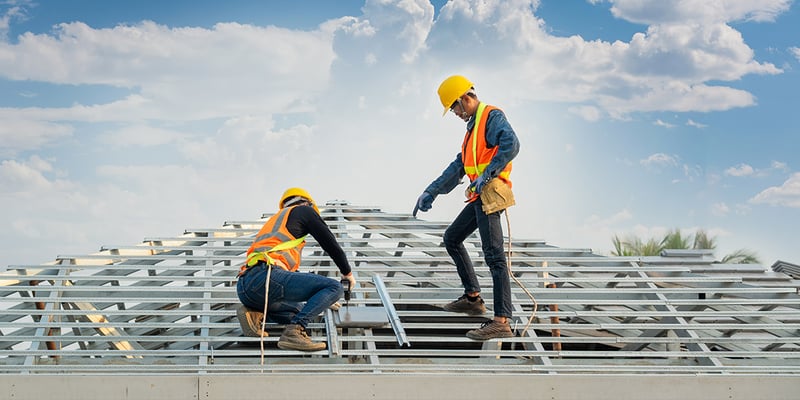
One of the most expensive projects any homeowner can undertake is replacing their roof. With costs ranging from $5,000 to tens of thousands of dollars depending on the size of the roof, the type of materials used, and other factors, it makes sense that many of our customers are interested in learning more about the warranties available for their new roof.
There are three primary types of roofing warranties– standard materials warranties that are offered by the manufacturers of the roofing products, workmanship warranties offered by the roofing contractor you hire, and extended manufacturer’s warranties that can be purchased for new roofing systems.
There are often a number of limitations and exclusions written into warranties, and the timespan they provide coverage is usually limited. For example, standard manufacturers’ warranties will cover defective materials, but improper installation and maintenance can end up voiding the warranty and leave you footing the bill for the repairs.
Let’s take a closer look at what you need to know about the different types of roof warranties, how long they last, what they cover, and what their limitations are.
What Types of Roof Warranties Are There?
There are three basic types of roof warranties out there: standard materials’ (manufacturers’) warranties, workmanship warranties, and extended materials’ (manufacturers’) warranties. While each of these can provide you with some coverage, it’s important to always read the fine print. Many homeowners expect that a “lifetime” warranty, for example, will cover the full cost of repairs over the time period they live in their home, which often isn’t the case.
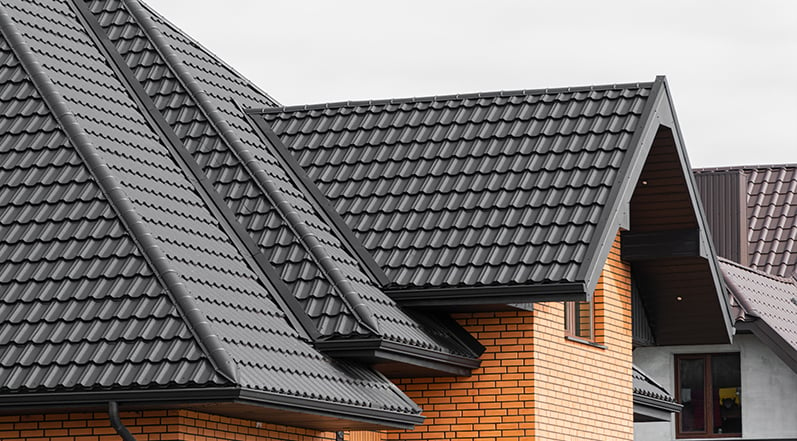
Let’s take a closer look at each of these primary types of warranties to help you understand what to look for when repairing or replacing your roof.
Standard Manufacturers’ Warranties
A standard manufacturer’s warranty is what you will typically find comes with most asphalt roofing shingles. This is a basic limited lifetime warranty, which has become the industry standard.
Though the terms can vary depending on the warranty, you will often find that lifetime warranties indicate that you’re covered for as long as you own your home. The definition of “limited” can vary quite a bit depending on the manufacturer, which means that there is a significant range in terms of the degree of protection you will receive.
In most cases, the cost of defective materials is pretty much all that will be covered under a standard manufacturer’s warranty. This means that any labor charges involved in removing and disposing of materials that have failed, along with the cost of installing replacements, will be your responsibility and not covered by the warranty.
Additionally, the cost of replacing defective shingles is usually only covered for the first few years after they have been newly installed. After that, the coverage is prorated.
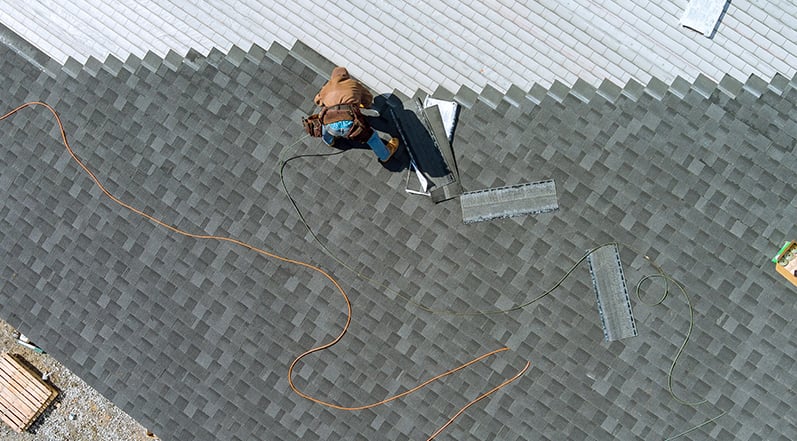
Manufacturers will usually give you replacement shingles if they are found to be defective during this first initial period. This can include the labor cost for the installation but not the cost of removing and disposing of the shingles that were defective.
During the prorated period, a standard manufacturer’s warranty will typically only cover a portion of the cost.
Remember, only factory defects are going to be covered by standard manufacturer warranties in most cases. If there were mistakes made during the installation that led to shingles falling off, the warranty wouldn’t cover it. Similarly, if there are problems with other components installed by your roofer, such as underlayment, ventilation products, or flashing, these won’t be covered either. That being said, it’s possible that these components will be covered under warranties offered by the manufacturers of the specific products.
To help you better understand the variation between manufacturer warranties, you can find a comparison of the different limited warranties offered by GAF here and IKO’s limited warranty for asphalt shingles here.
Contractor Workmanship Warranties
There are two key factors that will influence how well your roof performs after it is installed: the quality of the materials and the quality of the workmanship. The contractor that installs your new roof will, therefore, play an essential role in the longevity of the roof and its overall performance.
When shopping around for a roofer, you will always want to look for a company offering a workmanship warranty. This is a way that contractors can stand behind each installation job, as they will be responsible for covering problems resulting from faulty workmanship for a set period.
There can be a tremendous amount of variation between warranties offered by roofing contractors, so it’s a good idea to look at the fine print. Some will offer lifetime coverage, while others will be much shorter.
When reading through a workmanship warranty, you’ll want to look for protection from material failures that result due to improper installation techniques or worker error, regardless of the coverage term.
You will often find that these warranties cover the cost of materials and labor that will be necessary to make the repairs. If damage was done to the interior of a home or building, the warranty will also sometimes cover this.
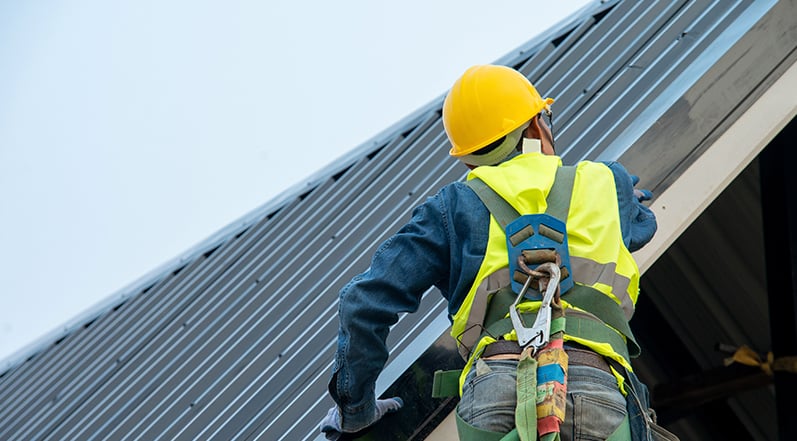
There are a number of issues that workmanship warranties won’t take responsibility for, however, which are problems that result from circumstances other than their installation workmanship. Examples include:
- ● Water damage due to ice dams
- ● Harm caused by foot traffic
- ● High wind, storm, and impact damage
- ● Leaks caused by wind-driven debris or falling tree limbs
- ● Damages resulting from an alteration post-installation
While it’s important to look at the warranty offered by a roofing company, this is by no means the only factor you’ll want to consider. Hiring the right roofing contractor can mean the difference between a long-lasting roof that performs well and a roof that causes problems immediately, so you should always look for businesses with a great track record of high-quality work and a commitment to customer service and satisfaction.
Extended Manufacturers’ Warranties
Manufacturers will often offer optional extended warranty coverage for homeowners motivated to get lasting value and have peace of mind regarding their new roof. These warranties are only available when the roofs are installed by authorized contractors that have received the necessary certification to install the roof based on the manufacturer’s installation requirements.
These optional warranties will cost a bit extra and are typically only available when installing an entire roofing system.
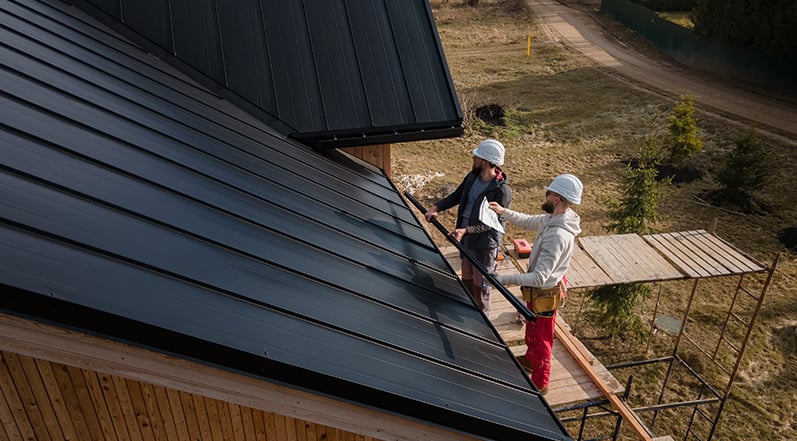
There are a number of benefits that consumers can receive from the most comprehensive extended warranties available, including:
- ● Length coverage for defective materials: Rather than offering prorated coverage, the best extended warranties will cover the labor costs for replacements or repairs and are extendable for up to five decades
- ● Coverage for all components: Rather than simply covering the roofing material itself, the best extended warranties will cover all of the roof system components except for fasteners, wood decking, and flashing
- ● Workmanship coverage in the event of installation errors: These are often offered with a lifetime term, including prorated coverage after a certain number of years have passed (sometimes these will include coverage for labor, removal, and disposal costs)
Are you looking to hire a roofing company, but you aren’t sure what to look for? Check out our list of the top fifty questions to ask before hiring a roofing contractor.
How Long Do Roof Warranties Last?
How long a roof replacement warranty lasts depends on a number of factors, including whether you’re concerned with the length of a manufacturer’s warranty or workmanship warranty.
The length of coverage for a standard material (manufacturer) warranty will depend on the manufacturer and the specific kind of roofing material. For example, a manufacturer’s warranty might come with a 25-30 year coverage period for asphalt shingles, but within that period, the coverage might be prorated after a certain number of years have passed.
For another example, a metal roof might have a manufacturer’s warranty attached to it that lasts for forty years or more.
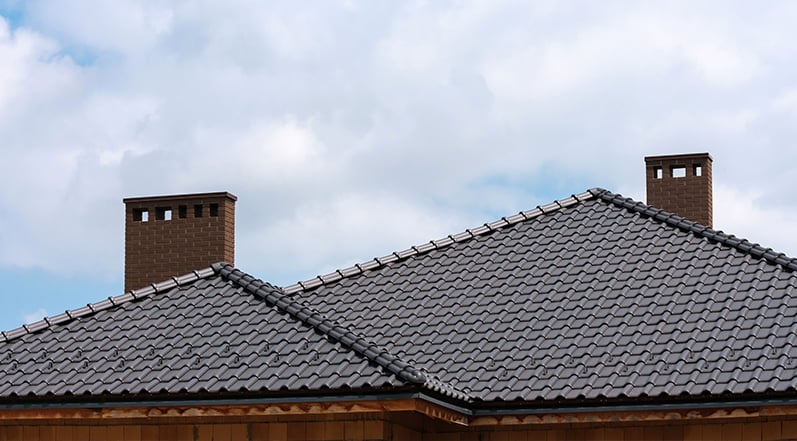
How long a contractor warranty lasts is also going to vary, this time based upon the specific company you are hiring. When you’re shopping around for a roofing contractor, it’s a good idea to request a written explanation of the length of time you can expect to be covered and what falls within the bounds of the warranty. These warranties usually last anywhere from 2 to 25 years, and some will offer lifetime warranties.
Are There Warranties Offered For Roof Repairs?
When it’s time to repair your roof, you might be wondering what protection is offered to you by the manufacturer and the contractor. There will be a standard manufacturer warranty that relates to the materials used in most cases, and you can choose to work with a roofing company that offers a workmanship warranty.
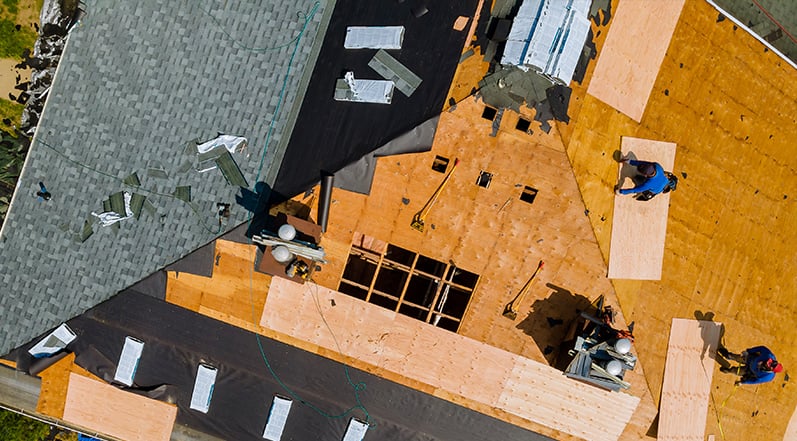
However, extended manufacturer’s warranties are often only applicable when you are installing an entirely new roofing system. When you are simply having a repair done, you usually won’t have the option to purchase additional coverage.
What Are the Limitations of Roof Warranties?
Unfortunately, many home and business owners are under the impression that long-term warranties will serve as all-inclusive insurance policies that protect them from paying for any issues that crop up with their roofs during the coverage period. The truth is that there is a lot of fine print that can accompany warranties, so it’s always a good idea to familiarize yourself with them so you know what to expect.
For example, manufacturer’s warranties will often stipulate that only leaks caused by specific items will be covered. As you might imagine, these warranties are specifically designed with limitations and exclusions that help reduce the manufacturer’s liability.
Perhaps one of the most notable common exclusions is the fact that manufacturer’s warranties will often only cover the roof surface and the base flashing. This means that if a leak appears from other roofing system components, the repairs won’t be covered under the warranty. However, you can receive additional coverage by purchasing an extended manufacturer’s warranty when installing an entirely new roofing system.
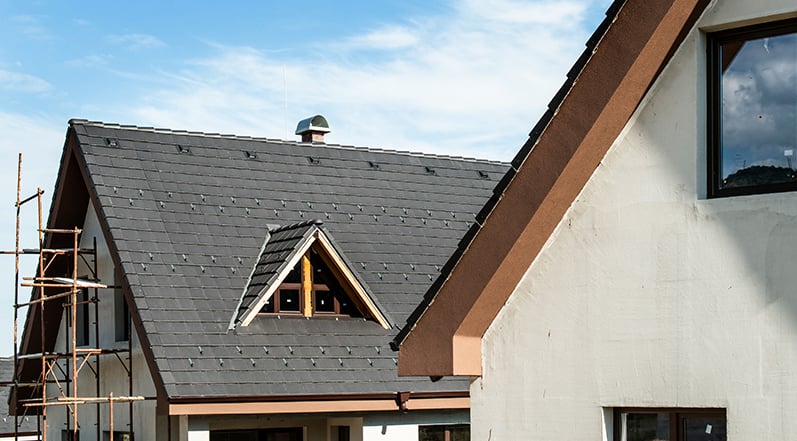
Warranties also typically don’t cover poor design flaws that can end up resulting in leaks. For instance, a warranty will often be voided if water ponds on a roof for a period of time longer than 24 or 48 hours. The reason for this is that the cause of ponding water is likely due to an improperly pitched roof that leads to improper drainage rather than the roofing materials themselves.
Once you start digging into the fine print of your roof warranty, you’ll also find a list of factors that can void your warranty, such as installing new shingles on top of existing shingles rather than removing the old material first.
Since there can be so many limitations and exclusions attached to roof warranties, it’s always a good idea to talk to your roofing contractor before proceeding to ensure that you fully understand what is and isn’t covered. There can be quite a bit of variation when it comes to warranty coverage, but in terms of manufacturer’s warranties, it’s generally safe to assume that they are motivated to protect their liability. For this reason, it can be worth purchasing the extended warranty if you’re concerned about receiving more adequate coverage for the lifespan of the roof.
Are You Searching For the Right Roofing Contractor?
How effective your roofing system is results from the combination of two factors: the quality of the materials and the quality of the workmanship. That being said, even the highest quality materials will fail to perform at their best if a roofing contractor fails to install them properly. While receiving adequate warranties is obviously an important factor when choosing a roofing material manufacturer and a roofing company to work with, it’s important not to let the details of the warranty cloud other more important factors, such as the experience and ability of the roofing contractor.
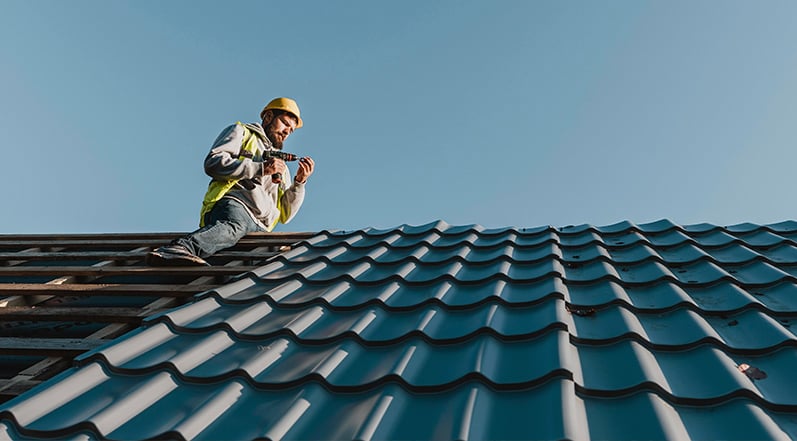
Do you live in the Atlanta area, and you’re in need of a roof repair or a full replacement? If so, you’ve come to the right place. At Colony Roofers, we specialize in offering the highest quality roofs for the most affordable prices. Our team is hand selected for their work ethic, integrity, and experience, and we pride ourselves on providing our customers with a seamless, stress-free process that results in expertly installed roofing systems.
If it’s time for you to invest in your roof– whether it’s a simple repair or a full-on replacement– we’re here to help. Contact us today to schedule a free estimate!
 Call (678) 365-3138
Call (678) 365-3138

